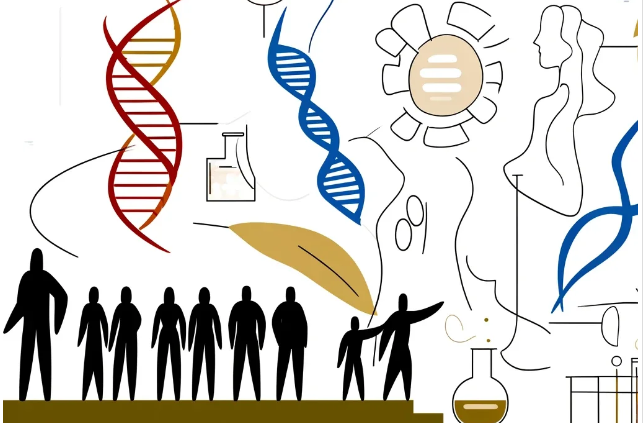Biotech and Pharma's March Shake-Up: Layoffs Signal Industry Evolution

March 2024 has been marked by a series of layoffs in the biotech and pharmaceutical sector, raising concerns and drawing attention to the dynamics within these industries. From Moderna's resizing of its COVID-19 footprint to GSK's parting ways with Bellus Health employees, the landscape appears to be shifting. These layoffs, although reflecting strategic decisions by individual companies, collectively paint a broader picture of the challenges and transformations underway in the biotech and pharma domain.
However, collectively, they paint a broader picture of the challenges and transformations underway in the biotech and pharma domain.
Moderna's Strategic Adaptation: Moderna's decision to downsize its manufacturing workforce in Massachusetts signifies a pivotal juncture in the global pandemic response. As vaccination rates stabilize and demand for COVID-19 vaccines undergoes flux, companies like Moderna are compelled to adapt their operations. This strategic realignment, though resulting in immediate workforce adjustments, demonstrates Moderna's proactive approach in aligning resources with evolving market demands and long-term sustainability objectives.
Arrakis' Operational Streamlining: Arrakis' workforce reduction in Waltham reflects a broader trend of biotech firms reassessing their operational strategies. In an industry characterized by rapid innovation and evolving market dynamics, companies are compelled to optimize resources and streamline operations. While layoffs inevitably present challenges for affected individuals and communities, they often accompany strategic realignments aimed at enhancing operational efficiency, driving innovation, and maintaining competitiveness.
Evonik's Pursuit of Efficiency: Evonik's ambitious reorganization program, targeting substantial cost reductions by 2026, underscores the imperative for continuous adaptation and optimization within the pharmaceutical supply chain. By implementing tailored restructuring initiatives, Evonik aims to navigate through dynamic market landscapes, bolster agility, and foster sustainable growth. Such proactive measures are indispensable for companies seeking to thrive amidst intensifying competition and evolving regulatory landscapes.
Takeda's Global Supply Chain Dynamics: Takeda's closure of its Austrian plant, resulting in nearly 200 job losses, highlights the intricacies of global supply chain management in the pharmaceutical industry. In a landscape characterized by regulatory complexities and market fluctuations, companies are compelled to reassess their manufacturing footprints. While such decisions may precipitate short-term disruptions, they often catalyze broader transformations aimed at bolstering operational resilience and efficiency.
Reflections from Kronos Bio: Kronos Bio's strategic workforce reduction serves as a poignant reminder of the ongoing recalibration within the biotech industry. In the face of clinical trial setbacks or market shifts, companies may resort to workforce adjustments to ensure financial stability and prioritize key projects. While such decisions are undoubtedly challenging, they reflect a proactive stance aimed at ensuring the long-term viability and success of the organization.
Sanofi's Global Realignment: Sanofi's decision to close its ex-Kymab R&D facility in the UK underscores the global nature of workforce realignment within the pharmaceutical sector. As companies evaluate their research and development portfolios, consolidation of operations may emerge as a strategic imperative to optimize efficiency and foster collaboration. While such measures may entail job losses, they are often driven by strategic imperatives aimed at enhancing innovation and driving sustainable growth.
Navigating Financial Terrain with Coherus Biosciences: Coherus Biosciences' comprehensive financial reporting offers valuable insights into the broader economic factors shaping workforce dynamics in the biopharmaceutical industry. Amidst regulatory hurdles, market fluctuations, and competitive pressures, companies must strike a delicate balance between strategic investments and cost management initiatives. Transparent financial reporting equips stakeholders with critical information to assess the company's performance amidst evolving market conditions.
Market Sentiment and Risk Management with Spruce Biosciences: The significant stock decline experienced by Spruce Biosciences underscores the importance of understanding market sentiment and effective risk management in the biotech sector. While short-term fluctuations are commonplace, they underscore the need for robust risk mitigation strategies and transparent communication with investors. Maintaining investor trust and credibility remains paramount amidst market volatility.
Local Impact of Catalent's Workforce Reduction: Catalent's decision to reduce its workforce in Bloomington underscores the localized impact of broader industry trends on regional economies. As companies optimize operations and adjust workforce levels, communities may experience job losses and economic challenges. Proactive engagement with stakeholders is essential to mitigate the social and economic impact of such workforce adjustments.
Adapting Strategies in the Face of Uncertainty with NextCure: NextCure's restructuring and layoffs underscore the inherent risks and uncertainties associated with drug development in the biotech industry. Despite promising scientific advancements, setbacks in clinical trials or regulatory hurdles may necessitate strategic pivots and resource reallocations. While layoffs may be a difficult aspect of corporate restructuring, they often accompany efforts to streamline operations and refocus efforts on high-potential therapeutic avenues.
Integration Challenges for GSK and Bellus Health: GSK's transition away from most Bellus Health employees following its acquisition underscores the complexities of integration and organizational alignment within the pharmaceutical industry. Mergers and acquisitions necessitate workforce consolidations and cultural integration efforts to optimize synergy and operational efficiency. While such transitions may entail job losses, they are pivotal in realizing the strategic objectives and long-term value envisioned through corporate partnerships and acquisitions.
The series of layoffs witnessed across the biotech and pharmaceutical industries in March 2024 highlight the multifaceted challenges and opportunities facing companies in these dynamic sectors. From strategic realignments to financial reporting and market fluctuations, the landscape is evolving rapidly, necessitating agility, resilience, and strategic foresight. As companies confronts these challenges, proactive engagement with stakeholders, transparent communication, and a commitment to innovation will be essential to drive sustainable growth and long-term success in the ever-changing healthcare ecosyste







